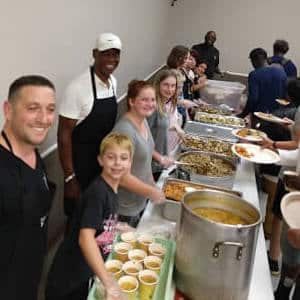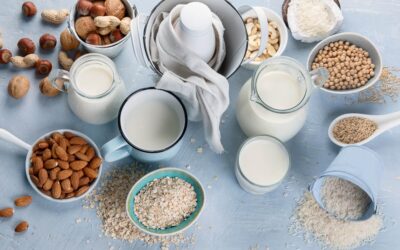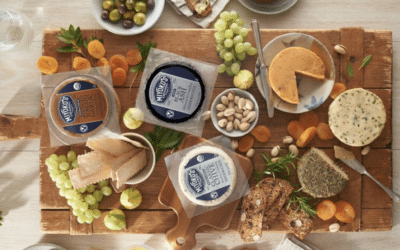At Switch4Good, our motto is “Live better. Do more. Dairy-free.” We are an organization of doers—people who go above and beyond to be the best they can be for themselves and others. During this time, some of us can harness that “doer” mentality and help others live better. If you have the means and you’re looking to lend a hand—whether that’s financially or through a volunteer capacity—we highly encourage you to consider Food Not Bombs. Our Switch4Good Podcast co-host, Alexandra Paul, has volunteered for this standout non-profit for seven years. With chapters around the world, they provide nutritious, dairy-free, and plant-based meals to those who need them most. During the time of COVID-19, they are expanding their efforts to attend to the increased demand this pandemic has created. We interviewed Alexandra for an inside look of what a day in the life of a volunteer looks like and to inspire you to take action if you can.

Switch4Good (S4G): How long have you been volunteering for Food Not Bombs?
Alexandra Paul (AP): About seven years now.
S4G: Why did you decide to support this specific organization?
AP: My advocacy focus has always been on the environment, peace, voting, and animals—never people directly! But a couple friends asked me a few weeks before Thanksgiving 2013 if there was a place they could volunteer to feed the hungry on the holiday. I remembered someone telling me they worked with a chapter of Food Not Bombs, so I thought I would check it out before I recommended it. I never left. Creating a sumptuous meal for over 100 people on donated food and labor is a true adventure every week. My friend Tom calls it “The Weekly Miracle.”
S4G: How does Food Not Bombs make a difference?
AP: The original aim of the organization back in the 70s was to encourage the US government to spend their money on people, not war. Volunteers fed vegan meals to the poor outside in the streets to show citizens how many impoverished people there are in a rich country like America and to highlight the misplaced spending priorities of our government. Another aspect is reclaiming food that would otherwise be thrown away—there is a lot of food waste in our country so most FNB chapters choose to use food donated by grocery stores that would otherwise go into the landfill. On the most basic level, FNB puts hot, healthy, plant-based food into hungry bellies. There are now 600 chapters all over the world. Each chapter operates independently but with those important tenets in mind.
S4G: What is your role as a volunteer?
AP: It has evolved from being a veggie chopper/sandwich maker to food pickups from stores, working with food donors, coordinating volunteers, ensuring we have enough food each week, and strategizing to make our chapter more effective. I am also the dishwasher! The Santa Monica chapter of Food Not Bombs feeds 120-150 people every Thursday night, and until that evening we really do not know what food we have to cook with, how many volunteers will show up, or the number of people we will need to feed, so it is an adventure! Whether we have five volunteers or 25 volunteers, we can always provide a hearty spread of potatoes, hot veggies, pasta with Tofurky sausage, salad, peanut butter and jelly sandwiches, fruit, pastries, and even some soy ice cream.
S4G: What are some ways people can get involved?
AP: Find your nearest FNB chapter on social media or at http://foodnotbombs.net/info/locations/ and volunteer. You can cook in the kitchens, serve the hungry, find food donations, or pick up and drop off food. Or start your own meal! You can also donate financially.
S4G: What do you enjoy about this work?
AP: What I like best is the simplicity of making a meal. I love the employees at Whole Foods, Tofurky, Erin McKenna’s Bakery, Food Forward, and the Westwood farmers’ market who collect the food to give to us. I love that the food doesn’t go to waste. I love the volunteers who chop, serve, and clean up. And I love the people who come to eat the meal.
S4G: What does your current volunteer schedule look like in the time of COVID-19?
AP: Amazingly, we still serve the same delicious, hot meal! The stores have less food to share, we have fewer volunteers, and there are more people to feed, but we have been nimble and the Salvation Army facility (where we cook and serve) has been very supportive. We put each meal in takeout containers instead of folks eating on the premises, the volunteers wear masks and gloves, and everyone endeavors to stay six feet apart—which is hard when you are trying to put out a meal for over 100 people in three hours. We are starting two hours earlier and some volunteers are cooking from home for us. My volunteers hours each week have gone up 50 percent and I have many more logistics to deal with, but I know this is temporary.
S4G: Why is this work so important?
AP: Every Food Not Bombs meal is a political, sociological, environmental, and ethical statement. It highlights inequality and poverty; it combats food waste; it advocates for cruelty free, sustainable eating; and it demonstrates love for our human brothers and sisters.








